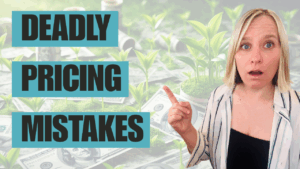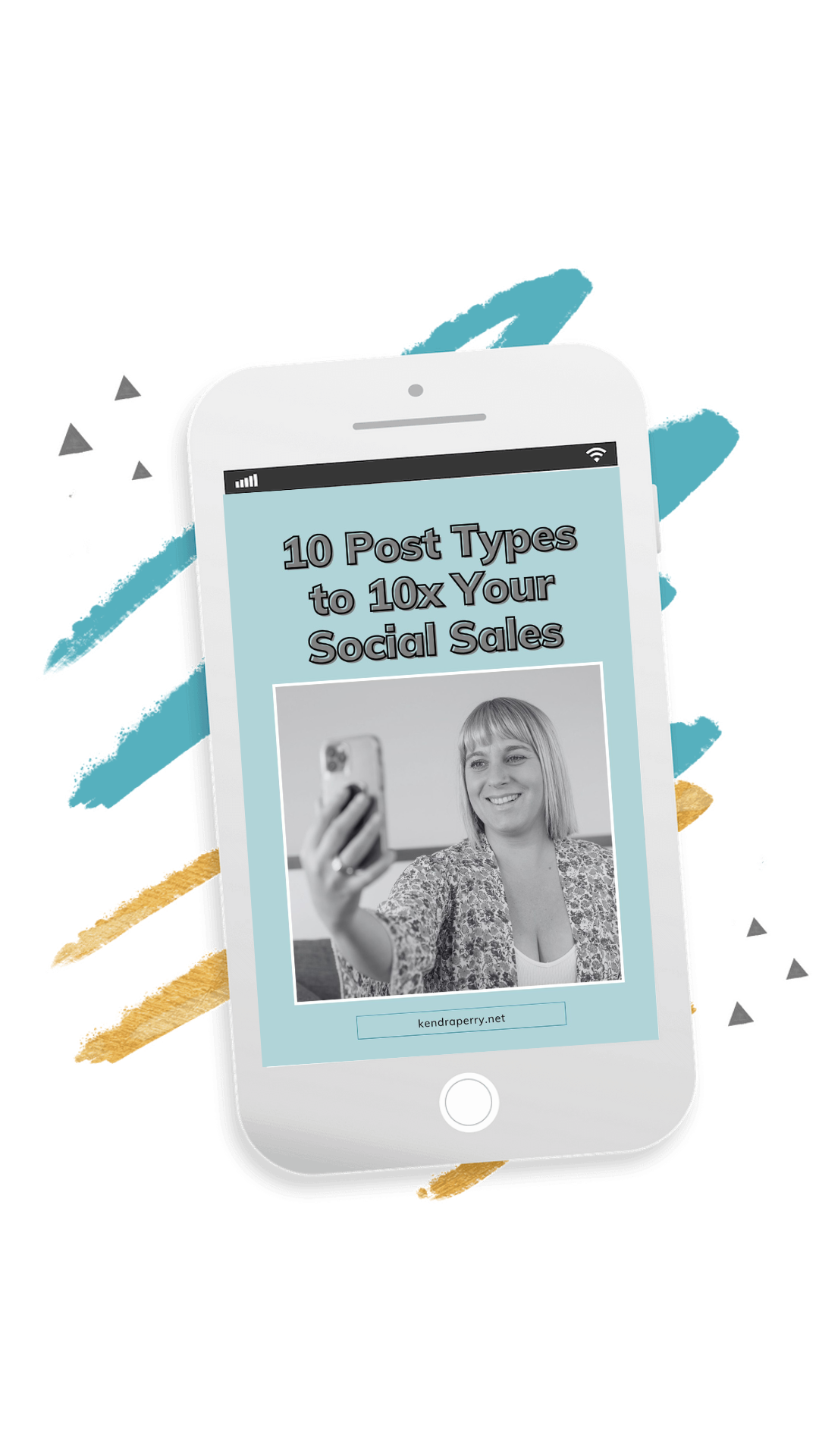You can never be everything to everyone. In business, you need to find your niche. But not just any niche; you need a profitable one. In this episode, Kendra Perry takes us on a masterclass on how to find your profitable niche. She dives deep into what niching really is and why it is important, especially as the world becomes inextricably online. She also demystifies the confusion surrounding niching and how it differs from an ideal client. With the three elements to niching, Kendra then discusses what really makes a profitable niche so you can choose one that not only makes you money but also feels aligned to you. Above all these generous insights and information, Kendra offers a gift to further help you find your niche and take your business to success. So tune in and don’t miss out!
Get the Niching Demystified Workshop for Free until August 10th, 2023 with coupon code: WEALTHYAF
https://go.kendraperry.net/niching-demystified
—
Listen to the podcast here
Masterclass: How To Find Your Profitable Niche
What’s up, my friend? I hope you’re having a fantastic day. As always, over the moon pumped to be here and I’m excited to share this masterclass with you. This is a masterclass that I did for the High-Profit. I thought you guys would find it valuable because there’s so much niche drama. It’s a thing, it’s a condition, and a lot of you guys are dealing with it because it’s hard to choose a niche. Sometimes it’s hard to understand what a niche is.
This masterclass is going to be valuable because I dive into some of the lingo around niching so you understand the difference between niche and ideal clients. I also tell you what makes a profitable niche so that you can choose one. One that is going to make you money and one that also feels aligned and that you feel excited about. At the end of this workshop, I offer the audience free access to my niching demystified workshop. I would like to extend that to you as well, but only until August 10th, 2023. It’ll be limited, so if you’re tuning in to this episode after August 10th, 2023, that will no longer be available. Let’s dive into the masterclass.
—
How’s it going? I am a business mentor for health coaches, wellness practitioners, and personal development coaches. I’m excited to talk about this topic. Niching is a hot topic. There’s a lot of resistance around niching. It’s also incredibly important. It will determine a lot of your success moving forward, especially when you’re earlier on in your business. Even if you’re midway, what I’ve found is that the biggest reason why a lot of coaching businesses are not succeeding or they’re not getting the results that they want is because there’s something going on with the niche and then the messaging that is connected to the niche.
The niche is the beginning part of the messaging, which is how you’re communicating with your audience and the people you want to help. If that communication is off and people don’t get what you’re talking about or they don’t understand how you can help them, then that’s going to be a big problem for a business.
I used to be a functional health coach. I started my business in 2014. I had no idea what I was doing. At the time, I was working in forestry. I used to fight fires, plant trees, and stuff like that. I also wanted to be a pro skier. That’s what I was doing, but it all came crashing down when I injured my knee after jumping off a cliff willingly. I willingly jumped off the cliff, blew out my knee, and needed two reconstructive surgeries. It blew both my careers out of the water and I didn’t know what to do.
Unfortunately, that surgery ended up triggering a whole host of health issues. I ended up with seven years of chronic fatigue, chronic insomnia. I felt terrible. It felt like I was dead. This is in my late 20s or early 30s. That’s what got me turned on to health and wellness. When I lost my career and I was getting sick, I was researching health and wellness. The conventional medical model didn’t resonate with me. I ended up doing a bunch of health coaching certifications, mostly to help myself, but then I realized, “This could be a career, too.” I accidentally ended up in that space and grew that business to multiple six figures.
In 2019, I realized that a lot of my passion was more on the business and marketing side. I was getting a little bit burned out with health and wellness coaching. I loved working with practitioners. I made that transition in 2019, and that’s what I’ve been doing ever since. Niching is a big part of what I teach my students and my audience because like I said, it is an integral and even the beginning step of your messaging and communication. In anything, communication is critical. When communication is off, then we’re going to miss each other.

If you’re brand new because there are probably people at different levels in their business, you might be like, “I don’t even know what a niche is.” Maybe you’re like, “I don’t even know what a niche is.” That’s fine because a lot of institutions and certification programs don’t go into marketing. They don’t give you much about business. If you don’t know what it is, it’s okay.
What Is A Niche
A niche is essentially your area of specialization. What it looks like is targeting a segment of the market. The market that we’re referring to in online business is the internet. Niching in online business is way more important than niching in brick and mortar. Let’s say you had an in-person coaching practice, it does look different. This is where people get tripped up because a lot of coaching institutions and certification programs are teaching a business model that potentially can work for an in-person business, in-person practice, or brick-and-mortar, but it will never work online because the two spaces are different.
For example, when you have an in-person business, a clinic, or an office space, you’re in a town or a city. People are going to look up people in their area and you’re going to come up or they’re going to see your sign on the street. You can rely on people coming off the street and stumbling into your practice, walking by, or referrals in the town. If you live in a city of $500,000, there’s only going to be so many coaches in that town. People only have so many options when they want to see in person.
I have a lot of coaches that come to me. They’re like, “My naturopathic doctor doesn’t have a niche. She’s very busy.” She is because it’s a different type of business. You can be a general practitioner, like a naturopath, personal development coach, spiritual coach, reiki practitioner, or massage therapist. You can get busy without having an area of specialization. Online is very different because no one’s going to stumble by your website. You can’t sit in your home office and expect someone to stumble by your website or your Instagram. The only way to get attention is to actively put yourself out there.
The problem is, when we’re thinking about brick-and-mortar and in-person, there’s a limited amount of people within that town or city. For example, I live in a small town. I live in a town that’s about maybe 10,000 to 20,000 people. If I’m a general coach or health coach in town, then I’m probably competing with maybe several dozen other health practitioners in similar areas of health and wellness. I’m trying to attract the attention or get the attention of 10,000 to 20,000 people.
If we compare that to the online world, we are looking at probably multiple billions of people online. We’re trying to get the attention of billions of people. Now, we have increased our competition pool because there are hundreds of thousands of other coaches of our kind on the internet. If we’re talking about health coaches, there might be 300,000, 400,000, or even 500,000 other coaches online. That’s a lot of competition. If you are a spiritual coach, there might be the same amount. Fitness coaches especially. There are a lot of fitness coaches online.
Instead of competing with the people in your area, you’re competing with hundreds of thousands, maybe even more, and you’re trying to get the attention of billions. It’s not possible. It’s exhausting. If you go that route, you’re going to feel like you’re on a hamster wheel with your drums and tambourine doing your little leg dance thing like, “Look at me,” and no one’s going to see you. It’s frustrating. Online, it makes more sense to reduce the amount of people whom we’re trying to get the attention of and our competition pool. This is where niching comes in and choosing an area of specialization.
I truly believe that people are very simple. This includes business and marketing. All of us, myself included, want to feel seen, heard, and understood. It’s like this intimacy that we’re looking for. We want to feel like people get us. People will not feel that way when you talk to them if you don’t get them. You can’t get every single person on the planet because there are all these people with these vastly different experiences. You can’t understand and know all of them. There are billions of different experiences that people have.
When you niche down, you create this intimacy, this intimate connection with your audience where you can show them that you get, see, understand, hear, and understand their day-to-day experience. When people feel like you get and understand them, and you can speak to their lived experience, this is where marketing and attraction for clients get effective. If people don’t feel like you get them, they’re probably not going to want to work with you. This is where niching is important because when you narrow in on a certain type of person with a specific problem. When we use the problem in context, they’re going to be having a very specific experience. If you can speak to that, they’re going to be like, “This person gets me.”
I’m going to use an example so that you understand what I mean. In my early to mid-twenties, I ended up with cystic acne. If you’ve struggled with acne before, you probably understand it’s very debilitating. There’s a lot of shame and embarrassment that goes with it. You feel ugly. It’s terrible. That’s how I felt. I was so embarrassed. I was constantly focused on it. It did a number on me in terms of my self-esteem and confidence.
I had acne. I was out there Google searching, but this was a long time ago. It was probably like AltaVista or Yahoo, some weird search engine. I’m dating myself. I was on the internet and I was searching for solutions to acne. I wasn’t searching for health coaching or wellness coaching. I was searching for solutions to acne. I want to talk about this weird thing that I used to do. If you have never had acne, you’re going to think this is weird. If you have had acne, you’re probably going to be like, “Totally.” I was so ashamed of my acne. I was a big partier in my twenties. I liked to go to social scenes and house parties.
Let’s say I went to a house party. I would intentionally navigate myself around the room, depending on the brightness of the light. I never wanted to stand in bright light because I felt like people could see my skin. They could see the acne underneath all the makeup that I put on and that would make me feel embarrassed and self-conscious. I would intentionally navigate to the darker corners of the room where there was less light because I would feel confident there.
If you’ve never had acne, you’re like, “What? I never even thought of that before. I have no idea that anyone would ever do that.” If you’ve had acne and you’re a social person, then you’re like, “I know exactly what you’re talking about.” The thing was, at the time, I never talked to anyone about this because it was embarrassing. I thought it was weird. I didn’t think anyone else did it or they got it. I never talked about my acne with anyone because I was ashamed, so I pretend like it wasn’t a thing.
If I had gone online searching acne, I came across a coach who specialized in acne, and she spoke about that, I would’ve felt seen, heard, and understood like crazy. I needed that at that point in my life because I felt so isolated with this problem alone. I didn’t see anyone else. Everyone else had nice skin. I would’ve been solved. If someone had spoken to that, I would’ve been like, “I’m not weird. I’m not alone. It’s not just me.” I would’ve been following and sticking around.
This is what I mean by being able to speak to people’s lived experiences. This is why it’s helpful when you are choosing a niche to focus on solving a problem that you’ve dealt with personally. If I chose to speak about rheumatoid arthritis, I never had that health condition. I could learn all about it, I could talk to people, but I’m probably going to miss out on those key lived experiences because I’ve never dealt with it.
Typically, when we’re a coach, we have the experience, the problem, and then we want to help people with it. That’s where it becomes easier because that connection piece is so important. You would never be able to do that if you are being a broad practitioner coach, speaking to all different types of issues, problems, and people. It feels diluted. People get confused and the communication feels off because people don’t get what you do. You do want to get known for one key thing.
Three Elements To Niching
When I think of the elements of a profitable niche, there are three elements. The person you help, the problem you solve, and the outcome that you offer. I want to break this down. When we think of the niche, we often narrow in on the problem. The problem is definitely 100% important, but the person plays a key role as well. I don’t think it’s good to target people because when we’re thinking about intimacy, connection, and speaking to people’s lived experiences in a way that they’ve never heard before, the person is important.
If we’re looking at this acne example, when I was dealing with acne, I was in my twenties. I was very social. I partied a lot. Being social, partying, dating, friends, that was my life. That party example was relevant. What if I had adult acne in my 40s? The reason why I might want to have clear skin might be different and the party example might not resonate.
For example, let’s say you are targeting fatigue. You try to help women have more energy. If we’re looking at a new mom, the reason why they don’t have energy is because they gave birth. They’re postpartum. They’re raising a baby. It’s a crazy time. Versus someone who’s maybe a corporate professional. You have your stay-at-home new mom, and then you’re a working corporate professional without kids. Their lived experience is very different. Their day-to-day is very different.
It’s easier to create this intimacy when you hone in on a person. I don’t recommend targeting people. Get more specific. Some people don’t want to target gender. That’s fine. You don’t need to necessarily target age groups, but what you’re looking for is an identity that people connect with and they would identify as. It gives people something in common.
I target health and wellness coaches and practitioners. That’s my person. It’s a unique experience. It’s different from business coaching. It’s different than a virtual assistant. It’s different from someone who’s doing eCommerce. The experience is different. As a health coach, you probably had your own health issue. You probably are still dealing with your own health issue. You’re super nerdy about health. I’ve been a health coach, so I get it. That’s where that intimacy comes in.
It doesn’t necessarily need to be gender or age group, but you want something, an identity that ties people together so you can speak to their lived experience. New moms, divorcees, or women in their 40s because they’re going through that perimenopause experience. If we’re talking about health and wellness coaching. It could be entrepreneurs, service providers, influencers, athletes, or eCommerce business owners. They’re so many different, but you we’re looking for that identity. The person should hear that identity and be like, “That’s me.”
If someone was targeting entrepreneurs, I’d be like, “That’s me.” If someone was targeting business coaches, I’d be like, “That’s me.” If someone was Targeting women in their 30s without kids, I’d be like, “That’s me.” If someone was targeting outdoor enthusiasts because I love to be in the mountains and play in the mountains, ski, mountain bike, all those things, I’d be like, “That’s me.”
You want to make sure that they identify as that because sometimes people come up with a person and they’re like, “I help soul-centered women.” I’m like, “I don’t know if women are identifying as soul-centered.” Maybe they are, but you want to ask yourself that question. Would they hear that and put their hand up and say, “That’s me?” That’s the person side of things.
Now, we move down to the problem. Problem is really important and I want to make two distinctions because there are lots of different problems. When we want to make money, not only be able to attract clients that want to pay us but to attract people that are committed to doing the work and solving the problem. As a coach, you have no control over whether people get results, it’s up to them, so we need committed people.
What this means is you need to solve a right-now problem versus a maybe-I’ll-deal-with-that-sometime-in-the-future problem. There’s a big distinction. A right-now problem is something that is deeply interfering with the quality of someone’s life. It’s preventing them from doing something they deeply want to be doing. It’s on their mind. They’re losing sleep over it. They’re thinking like, “I can’t live like this anymore. I need to solve this problem now.” In the context of business coaching, it could be like, “I’m not getting clients. This is a big deal.” I’m going to have to give up on my business.
If we’re thinking about career coaching or life coaching, it could be like, “I hate my job. I hate it so much. I wake up every morning and I’m so depressed.” That’s a right-now problem. Debilitating fatigue that I dealt with. That’s a right-now problem. This wasn’t like, “Maybe I’ll deal with that sometime in the future.” That’s like, “I need to solve this now.” You want to make that distinction because there are lots of problems you can solve.
If it’s not urgent, if it’s not right now, then the person’s not going to take action immediately. They’re not going to feel called to take action. They’re going to think, “I’ll deal with that down the line.” They also won’t be willing to pay good money for it. If you do end up working with them, they’re probably not going to be that committed because commitment comes to almost that rock bottom moment. That, “I can’t do this anymore. I can’t keep living like this.” That’s what you want to think about.
The other thing that you want to think about is awareness. Awareness and consciousness are critical when it comes to the problem because you will never be able to solve a problem for a person. They don’t know they have that problem or they don’t think they have that problem. They have to have awareness of the problem. This is where we have to make the distinction between the deeper root problem versus the superficial problem.

In the context of health, that would be the difference between being overweight, which people know they’re overweight, they know they want to lose weight, versus having a blood sugar issue. Blood sugar imbalances are a huge cause of weight gain, but they don’t have that knowledge. They didn’t go to school to be a health coach. They don’t know. They’re not thinking about their blood sugar, they’re thinking about their weight.
In terms of relationship coaching, personal development, or life coaching, it could be like a toxic relationship with yourself. I help people change their toxic relationship with themselves, but do they know that they have a toxic relationship with themselves? Probably not, because that’s a deeper root cause. You have to think about how that deeper root cause manifests.
Another example would be trauma. People don’t always know they have trauma. People don’t know they have generational trauma. They may not know about ancestral trauma. You have to think about how that deeper problem manifests superficially because that’s what they’re going to be aware of. In the context of business coaching, what they think they need or the problem they think they have is, “I need a better strategy.” Maybe what they need is mindset coaching. If you try to sell them mindset coaching, they’re like, “I don’t know what that is.” They’re like, “Strategy. Strategy.”
You have to make the distinction between the problem that they have on a deeper level and the superficial problem that they have awareness around or they have that consciousness around. They must be problem-aware. I want to make the distinction here between what you help them within your containers because my people get tripped up because they’re like, “I want to help people with the root cause. That’s what I was trained for. I can’t help people solve symptoms.” That’s not what I’m telling you to do.
Within your container or offer, whatever you use to help people, you were going to help them with the deeper root cause. When we’re talking about niching, we’re talking about that communication piece and that messaging piece. If we’re going to even attract them and get them into a world, we have to speak to the problem that they think they have, and then we can educate them within our marketing, offer, or container, whatever that looks like, about the deeper root problem and help them solve that.
With the example I used earlier about weight loss and blood sugar, I’m not going to be out there being, “Blood sugar.” I’m going to be like, “I’ll help you lose 50 pounds. This is how I do it. This is the outcome you can achieve.” Once they’re in my program, I’m going to educate them on blood sugar and say, “You got to balance your blood sugar or you’re going to keep losing weight.” They’re going to be like, “Okay. Cool.”
If you lead with that, then you lose them. This awareness piece is key. Remember, when you’re niching in this superficial problem, it doesn’t change how you coach or what you basically help people with inside your containers. You always help them with the deeper root problem, whatever that is, but you have to lead with the superficial problem that they have awareness around.
The next piece of this is the outcome. We’ve talked about the person and the problem. Now, we have to talk about the outcome. The outcome is the thing they want instead. It’s always the thing they want, but they can’t have because of the problem in the context of their identity or the person of whom they are. For example, we’ll go with this weight loss example. Let’s say you have 2 people who are 50 pounds overweight. One person is a 20-year-old college kid and the other person is a 65-year-old grandmother. They both want to lose 50 pounds. The way you’re going to go about it is probably different because 65 menopause versus a 21-year-old college kid with raging hormones, it’s going to look different. It’s going to be a different journey.
The other thing I want to connect to here is the reasons why they want to lose weight are probably different. The college woman is like, “I want to lose weight so I can wear my skinny jeans, go to the bar, feel confident, and date.” It’s not what the 65-year-old woman wants who’s a grandmother likely. She’s like, “I want to be able to keep up with my grandkids. I want to have energy. I want to feel good and be able to keep up with my grandkids.” See how it’s different? The outcome is different even though the problem is the same because of the identity. When we’re thinking about the outcome, it always needs to be in the context of who they are and the thing they can’t have because of the problem.

The best place to get this is from them. When we talk about anything with messaging, niche, and communication, we have to speak their language. Market research is a very critical thing to do in the early stage of your business, but even ongoing in your business. I do market research constantly, but I do market research interviews where I sit down with my people every year, get on a Zoom call, record it, and ask them questions.
I want to make sure that I’m always on track with what they’re struggling with and that my communication is on point. The outcome needs to come from them. The person and the problem are the most important, but when we talk about the outcome, ask them what they want. They’re going to tell you. You want to make sure you use their words. You would never want to say something so they can thrive. When you think about this person, you want to use words that would come out of their mouth.
They’re not going to be sitting down in a coffee shop with their best friend saying, “I want to thrive.” In the context of this weight loss niche, they’re going to be saying, “I want to feel comfortable with my clothes again. I want to feel confident to date again. I want to stop feeling crappy about myself. I want to be able to wear a bikini and not feel self-conscious.” That’s what they’re going to be saying.
They’re not going to be saying, “I want to thrive. I want to be the best version of myself.” They’re not going to be saying something broad and fluffy that has no meaning. They’re going to be specific. I’m never going to say. “I want to feel at home in my body.” I am going to say, “I want to feel confident with my body.” Language is important and it’s important that you use the language that they would utilize.
What happens if you’re stuck? Sometimes some people know what they want to go into. Some people are very stuck. I don’t even know where to start. I would look at the problems that you’ve struggled with because like I said earlier, it will always be easier if you go after a problem or you niche down in a problem where you have experience. It’s always going to be easier that it’ll be easier to create that intimacy. Your story will be a big part of your marketing. People love to hear your story. They want to hear how you got from A to B to C.
That is a good place to start. If not, if you’re like, “I haven’t struggled with a lot of things,” think about the person who you would feel incredibly excited to help. Oftentimes, it’s a person like you. Again, intimacy. I help health and wellness coaches, but I tend to attract women who are in their 30s and 40s because I’m in my 30s. That’s who I tend to attract because people attract alike.
People are attracted to people who they can see themselves in. Maybe you are a single mom. Would you feel excited to work with other single moms? Would you be excited to work with fitness coaches? Would you be excited to work with entrepreneurs? Think about the type of person that you would feel excited about working with, and then ask them what problems they have. Think about the different problems that they would need to solve. That’s a good way to start with that.

How To Utilize The Niche Inside Your Business
How do you utilize the niche inside your business? The niche determines everything. Once we have the niche, it determines the offer and ultimately what you choose to sell. The offer solves the problem. The offer is the bridge between problem and solution or between problem and outcome. Your offer is the bridge. You can’t say, “I help women in their 50s lose 10 pounds,” and then have a program about smoothies or have a program about yoga because it doesn’t connect. The offer needs to be the bridge between the problem and the outcome.
It’s also going to determine all your marketing, your social media content, and your messaging because everything has to come back around that. Everything needs to be relevant. Relevancy is critical in marketing. It’s not relevant to them even when it’s your story. Even when you’re trying to build a connection, there still has to be relevancy in it. It all needs to tie back to your person, their problem, and their lived experience.
Sometimes I speak about certain things that might not have a lot to do with business even though I’m a business coach, but I’m doing it because I’m building connections. I’m connecting with common shared values. There’s relevancy. It’s also going to depend on or going to affect what collaborations and opportunities you take on. There are going to be a lot of opportunities presented to you as you move throughout your business, but not all of them are going to be good.
For example, I’m speaking for the High-Profit Coaching Summit, but when I saw the opportunity, the first thing I did is I went through the description and I asked myself, “Are my people hanging out in this audience?” While this coaching summit doesn’t specifically target health and wellness and personal development coaches and practitioners, it targets female coaches.
Overall, there’s a good chance that my person is in this group. Not everyone’s going to fit into that group, but there are going to be some people. I always ask myself that because if someone asked me to speak for a summit that may be focused on service providers, hairstylists, nurses, or writers, even if I can get in front of 1 million people, if my audience wasn’t in that audience, it wouldn’t be a good opportunity. It wouldn’t be a good use of my time. It would be a shiny object in disguise.
What Happens If You Choose The Wrong Niche
I want to address two more things because this comes up pretty often. What happens if I choose the wrong niche? What if you want to pivot your niche? A lot of people are afraid to choose a niche and they don’t take action because they’re afraid to choose the wrong niche. This happens and sometimes it’s the point. I believe the point is to choose the wrong niche because it’s only through action that we get clarity. Clarity only comes from action. It doesn’t come from spinning out in our crazy brains. Sometimes you choose the wrong niche and that’s okay, but you’re only going to know that by putting it into action and seeing how it feels.

My first niche was in hormone imbalance and I ended up switching that about two years into my business because it didn’t feel like it aligned anymore at some point. I made the shift into helping women in their 30s with fatigue. If you do need to pivot your niche, the first thing I want to put out is it takes time to establish yourself in a niche.
If you’re six months in with a niche and you feel you’re not getting traction, it’s not necessarily a problem with your niche. Building a business takes time. No brick-and-mortar business, no restaurant expects to be profitable within a year. They have a 2 to 3-year, possibly even longer, profit plan. It’s crazy in online business and coaching where we’re three months in and we’re like, “Nothing’s working.” We’re freaking out. We have to be patient.
It’s not necessarily a problem with your niche. It probably requires more time learning more about your person, and then gaining all the skills that are required for online business like content creation, communication market, and all these things. If it feels unaligned, and make sure that it’s not feeling unaligned because you’re not getting traction, make sure it feels unaligned because you’re like, “I don’t think this is right for me.”
If you need to make a niche pivot, it’s fine. I’ve switched my niche three times. I started with female hormone imbalance. I moved to a woman in their 30s with fatigue. I then made a full pivot into business coaching and helping health coaches. I’ve made three pivots. Where people freak out about this is they’re like, “I don’t want to start from scratch. I don’t want to start from square one.” You were never starting from square one because you’ve always learned.
I learned so much in the first couple of years of my business that when I switched my niche from hormone imbalance to fatigue, my business didn’t suffer because I already understood all the things that I learned under the other niche. I applied them to a different niche. When I made the pivot from health coaching to business coaching, my business increased. I saw no dip. I had the biggest year of my business.
That’s because it felt more aligned and I was more excited, but it’s because I already knew how to build a business. I’d built my business to $350,000 at that point. I took everything I’ve learned there and then applied it to business coaching, and then doubled my income. It’s okay. If you want to make a niche pivot, keep it simple. Put out a social media post. Send out an email that says, “I’m making this switch. This is where my passion lies. thank you so much for supporting me up until this point. If this resonates with you, I hope you’ll stick around. If it doesn’t, feel free to unfollow. I appreciate you. Again, thank you for supporting me until this point.” That’s it, and then move on.
Health Coach Accelerator
I hope you found this valuable. I love talking about niching. This has been fun to jam out with you about this. If you’re interested in working with me, I have a program called Health Coach Accelerator. It is for health coaches, practitioners, and personal development coaches. Maybe you’re an MD, Medical Doctor, naturopathic doctor, health coach, IIN coach, functional health practitioner, functional medicine doctor, massage therapist, or Chinese medicine doctor, maybe you do spirituality coaching, life coaching, or fitness coaching. Anything under the health and wellness and personal development umbrella, is what I help people with inside my program, Health Coach Accelerator, which helps you get started.
We help you choose that profitable niche and then create the communication and messaging so that by the end of the program, you have your niche in place, and you have your program built. We help you build your program that gets your clients results, and then we show you how to market it with social media. We give you your content plan and we show you how to sell and expand your reach. That’s what we do inside the program. By the end of the program, you have everything in place. You have your program out there, you’re taking in clients, and you are working towards building that six-figure-a-year business and beyond.
If you want to go a little bit deeper into niching, if you want to see me audit some niches in real-time, if you want to go a little bit deeper on this topic, if you loved it, you can grab my Niche Like a Boss Workshop. You can download that for free. Normally, it’s a paid workshop. You get it for free, so make sure to download that. If you want to connect with me on Instagram, my handle is @KendraPerryInc. If you have any questions, I’d be happy to answer your questions. If you want to connect with me and tell me your biggest take homes from this training, I would love to hear from you. I hope you have a good day and happy niching.
Important Links
- High-Profit Coaching Summit
- Niching Demystified Workshop with coupon code: WEALTHYAF
- Health Coach Accelerator
- Niche Like a Boss Workshop
- @KendraPerryInc – Instagram
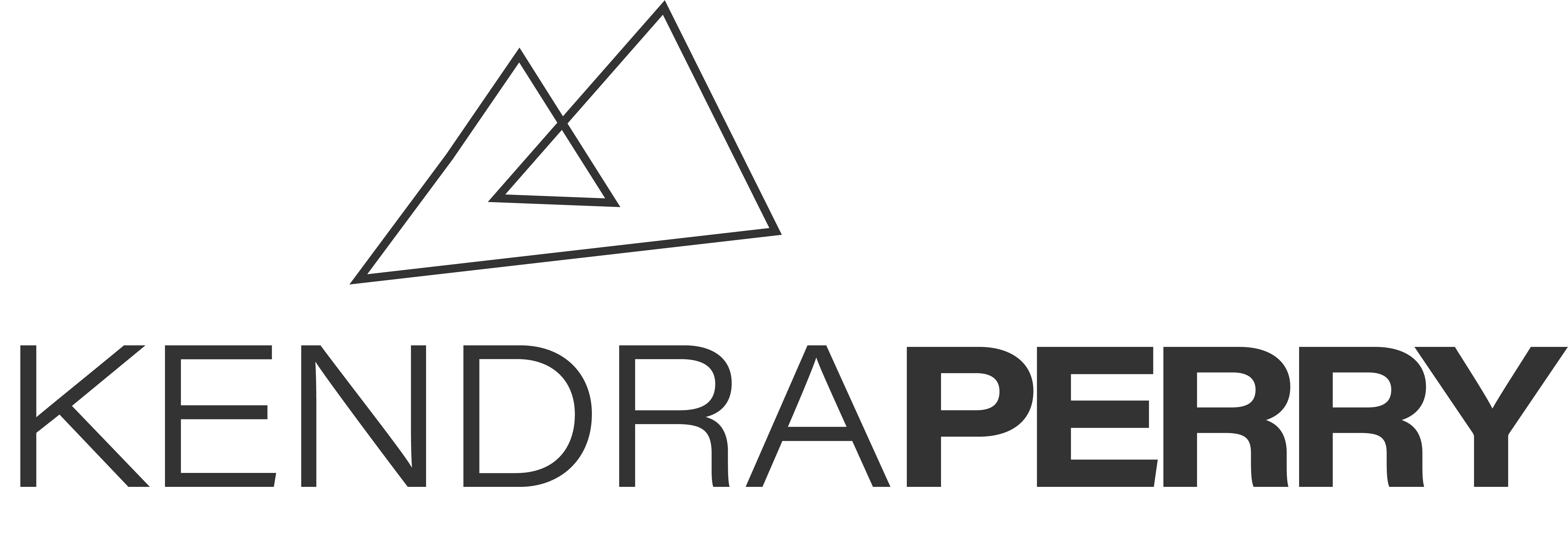
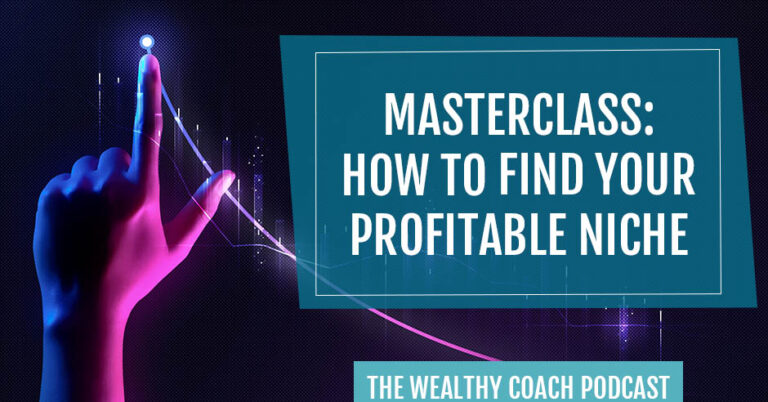
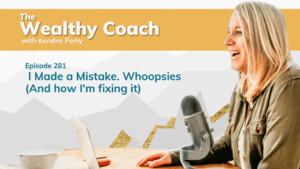
![[BEST OF] A Cautionary Tale About Your Niche](https://kendraperry.net/wp-content/uploads/2025/05/BEST-OF-A-Cautionary-Tale-About-Your-Niche-300x169.png)
